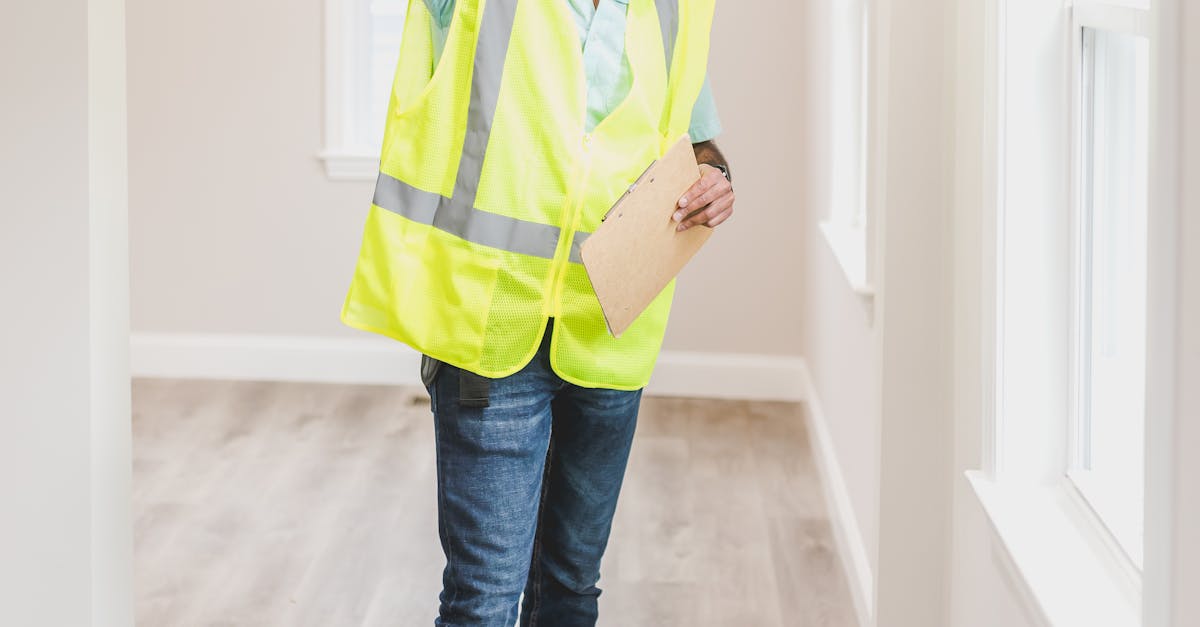
Table Of Contents
Structural Components Assessment
When conducting home inspections in Caledon, assessing the structural components is a crucial aspect of ensuring the safety and integrity of a property. This process involves meticulously examining the foundation and framing for any signs of damage or deterioration. Qualified inspectors will thoroughly inspect the walls, floors, and ceilings to identify any cracks, shifts, or other structural issues that may compromise the stability of the home. By closely evaluating these key components, inspectors can provide valuable insights into the overall condition of the property and recommend any necessary repairs or maintenance measures to address potential concerns.
Home inspections in Caledon also include a detailed assessment of the insulation and ventilation systems within the property. Inspectors will verify the presence of adequate attic insulation to ensure optimal energy efficiency and thermal regulation. Additionally, the ventilation systems throughout the home will be inspected to confirm proper airflow and ventilation in key areas such as bathrooms, kitchens, and attics. These assessments play a critical role in enhancing the comfort, efficiency, and overall livability of a home while also ensuring the health and well-being of its occupants.
Checking Foundation and Framing for Damage
Checking the foundation and framing for damage is a crucial aspect of home inspections in Caledon. The inspector will carefully examine the foundation for any signs of cracks, shifting, or water damage that could indicate structural issues. Additionally, the framing of the house will be inspected to ensure it is strong, secure, and free of any rot or pest damage that could compromise the integrity of the building.
During the inspection, the inspector will visually assess the foundation and framing, looking for any visible damage or concerns. They may also use tools such as moisture meters or infrared cameras to detect any hidden issues that could be lurking beneath the surface. By thoroughly examining the foundation and framing for damage, the inspector helps ensure that the home is safe, stable, and structurally sound for its occupants.
Inspecting Insulation and Ventilation
When it comes to home inspections in Caledon, assessing insulation and ventilation is a critical aspect. Insulation is key in maintaining a comfortable indoor temperature year-round while also ensuring energy efficiency. During the inspection process, the inspector will examine the insulation in the walls, floors, and ceilings to ensure it meets the required standards and is properly installed. Adequate insulation helps to prevent heat loss in the winter and keep cool air inside during the summer months.
Ventilation is essential for maintaining good indoor air quality and preventing issues such as mold and dampness. Home inspectors in Caledon will check the ventilation systems, including bathroom fans, range hoods, and attic ventilation, to ensure they are functioning properly. Proper ventilation helps to remove excess moisture from the air, which can lead to structural damage and health problems if not adequately addressed. A thorough inspection of insulation and ventilation ensures that the home is not only comfortable but also safe and healthy for its occupants.
Verifying Adequate Attic Insulation
One critical aspect of home inspections in Kawartha Lakes is verifying the adequacy of attic insulation. Proper attic insulation plays a significant role in maintaining a comfortable and energy-efficient home environment. During the inspection process, the insulation levels will be assessed to ensure they meet the recommended standards for the region, helping homeowners understand if their property is adequately insulated to prevent heat loss and reduce energy costs.
In older homes, inadequate attic insulation is a common issue that can lead to energy inefficiency and temperature regulation problems. Home inspectors in Kawartha Lakes will carefully examine the attic space to determine if additional insulation is required. This thorough inspection helps homeowners identify potential areas for improvement in their insulation levels, contributing to a more sustainable and cost-effective living space.
Appliance Inspection Protocol
Appliance Inspection Protocol
Home inspections in Peterborough encompass a thorough evaluation of the property's appliances to ensure they are in proper working condition. The assessment involves checking the functionality and safety of essential household appliances such as dishwashers, refrigerators, ovens, and washing machines. Inspectors examine these appliances to verify that they are operating as intended and pose no safety hazards to the occupants of the home.
Moreover, the inspection protocol includes assessing the age and maintenance history of the appliances. This information provides valuable insights into the potential lifespan and reliability of the appliances in the long term. By considering these factors during the inspection process, homeowners and buyers can make informed decisions regarding the upkeep and potential replacement of appliances in the home. Overall, a comprehensive evaluation of appliances during a home inspection ensures the safety and functionality of these essential household items.
Testing Kitchen Appliances Functionality
Home Inspections in Peterborough involve a meticulous assessment of the functionality of kitchen appliances. During this phase of the inspection process, a certified home inspector will carefully examine each kitchen appliance to verify that they are in good working condition. This includes checking the stove, oven, dishwasher, refrigerator, and any other built-in appliances to ensure that they operate as they should.
The inspector will conduct various tests on the kitchen appliances, such as turning on the stove burners and oven to confirm they heat up properly, checking the dishwasher for any leaks or drainage issues, and ensuring that the refrigerator maintains the correct temperature. Any signs of malfunction or potential safety hazards related to the kitchen appliances will be documented in the inspection report, providing valuable information to the potential homebuyer about the condition of these essential household items.
FAQS
What is included in a structural components assessment during a home inspection in BC?
A structural components assessment typically involves checking the foundation and framing for any signs of damage or deterioration.
Why is it important to inspect insulation and ventilation during a home inspection in BC?
Inspecting insulation and ventilation is crucial to ensure energy efficiency and proper air circulation within the home.
What does verifying adequate attic insulation entail during a home inspection in BC?
Verifying adequate attic insulation involves checking the insulation levels to ensure they meet the recommended standards for energy efficiency.
What is the protocol for inspecting appliances during a home inspection in BC?
The protocol for appliance inspection includes testing the functionality of kitchen appliances to ensure they are in working condition.
Why is testing kitchen appliances functionality important during a home inspection in BC?
Testing the functionality of kitchen appliances helps identify any potential issues or repairs needed, giving buyers a clear understanding of the home's condition.






